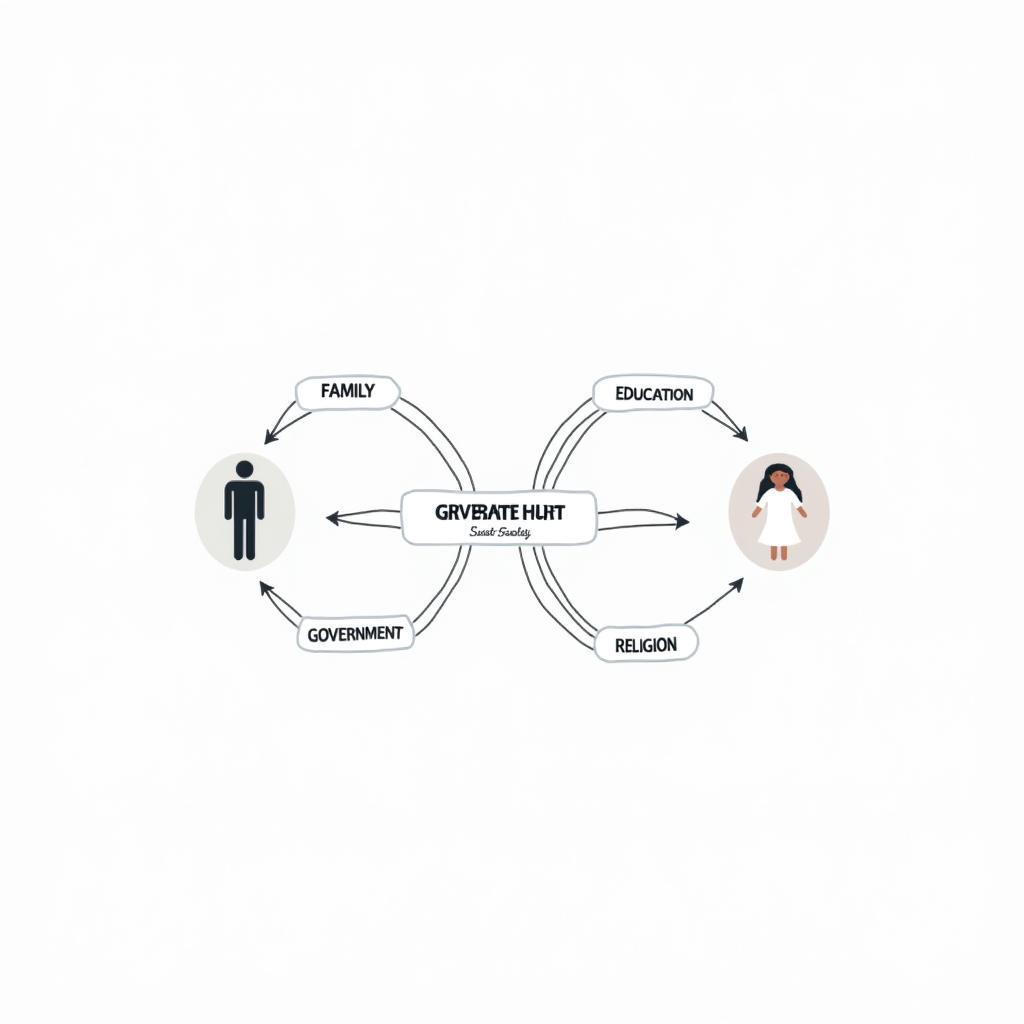Émile Durkheim, a foundational figure in sociology, viewed society as a complex system with interconnected parts, much like a living organism. His functionalist perspective emphasizes how each part of society contributes to the overall stability and functioning of the whole. This interconnectedness, according to Durkheim, is what allows society to persist over time. functionalist émile durkheim viewed society as
Understanding Durkheim’s Functionalist View
Durkheim believed that social phenomena, like religion, education, and even crime, served a purpose in maintaining social order. He argued that these seemingly disparate elements contribute to the overall health and stability of society. He referred to this interconnectedness as “organic solidarity,” highlighting the interdependence of individuals and institutions within the social structure. This contrasts with earlier, simpler societies characterized by “mechanical solidarity,” where shared values and beliefs held people together.
Durkheim’s concept of social facts is also crucial to understanding his view of society. Social facts are external forces, like norms, values, and institutions, that shape individual behavior. These forces, according to Durkheim, are not created by individuals but are products of collective life and exert a powerful influence on our actions. They are the “glue” that holds society together. For instance, the institution of marriage, a social fact, dictates acceptable behaviors and expectations surrounding romantic relationships, thereby contributing to social stability.
How Did Durkheim View Social Change?
Durkheim recognized that societies evolve and change over time. He argued that this change often occurs through a process he called “dynamic density.” As populations grow and interact more frequently, the division of labor becomes more complex. This increased specialization leads to greater interdependence and a shift from mechanical to organic solidarity. He believed that social change, while sometimes disruptive, ultimately leads to a more complex and integrated social organism.
Another key concept in Durkheim’s theory is “anomie,” which refers to a state of normlessness or social instability that can arise during periods of rapid social change. When traditional norms and values break down, individuals may feel lost and disconnected, leading to increased social problems.
The Role of Institutions in Maintaining Social Order
From Durkheim’s perspective, social institutions like family, education, and government play a crucial role in maintaining social order. These institutions transmit social facts to individuals, shaping their behavior and ensuring conformity to societal norms. For instance, the education system not only imparts knowledge but also instills values and socializes children into the norms and expectations of society. functionalist émile durkheim viewed society as
 Social Institutions and Social Order according to Durkheim
Social Institutions and Social Order according to Durkheim
What are some criticisms of Durkheim’s functionalism?
While highly influential, Durkheim’s functionalist perspective has also been subject to criticism. Some argue that it overemphasizes social order and downplays the role of conflict and power dynamics in shaping society. Critics also point out that functionalism can be difficult to test empirically, as it focuses on abstract concepts like social functions rather than observable behaviors. Despite these criticisms, Durkheim’s work remains a cornerstone of sociological thought and continues to provide valuable insights into the workings of society. functionalist émile durkheim viewed society as
Conclusion: Durkheim’s Enduring Legacy
Émile Durkheim viewed society as an interconnected and interdependent system, where each part plays a vital role in maintaining the whole. His functionalist perspective emphasizes the importance of social facts, institutions, and the division of labor in shaping social order and stability. Understanding his insights is crucial for comprehending the complexities of social life and working towards a more peaceful and harmonious world.
FAQ:
-
What is the core idea of Durkheim’s functionalism? Society functions like an organism, with interconnected parts working together for stability.
-
What are social facts according to Durkheim? External forces, like norms and values, shaping individual behavior.
-
What is anomie? A state of normlessness or social instability, often arising during rapid change.
-
How does Durkheim view social change? As a process driven by dynamic density and leading to greater complexity.
-
Why is Durkheim’s work important? It offers valuable insights into social order, institutions, and the dynamics of society.
-
What is mechanical solidarity? Social cohesion based on shared values and beliefs, typical of simpler societies.
-
What is organic solidarity? Social cohesion based on interdependence and specialization, characteristic of complex societies.
For further information and resources on promoting peace and understanding across cultures, explore other articles on our website. We encourage you to join our community and contribute to a more peaceful world.
When you need assistance, please contact us: Phone: 02043854663, Email: societyforpeace@gmail.com, or visit us at: Khu 34, Bac Giang, 260000, Vietnam. Our customer service team is available 24/7.
 using WordPress and
using WordPress and